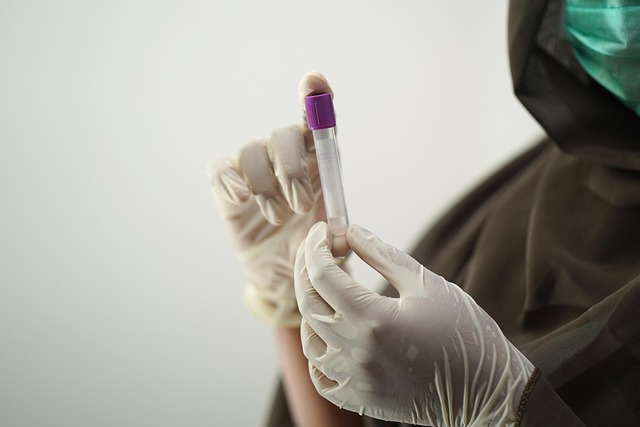Liver function tests and the Male Hormone Blood Test UK are vital for evaluating male health, identifying liver issues, hormonal imbalances, and conditions like hypogonadism early. Key metrics include ALT, AST, bilirubin, albumin, and PT, aiding in diagnosis and monitoring treatment effectiveness through hormone replacement therapy.
“In the realm of medical diagnostics, the liver function test (LFT) is an indispensable tool for assessing hepatic health. This article delves into the essential components of LFTs, with a particular focus on their relevance in UK medical practice, especially regarding male hormone blood tests. We explore standard metrics and interpreting results, guiding medical professionals in navigating this critical aspect of patient care. Understanding these tests is pivotal for recognizing potential liver issues early on, enabling timely interventions.”
- Understanding Liver Function Tests: Basics for Professionals
- Male Hormone Blood Test: Relevance in UK Medical Practice
- Interpreting Results: Standard Liver Function Metrics
Understanding Liver Function Tests: Basics for Professionals

Liver function tests (LFTs) are a crucial set of blood tests that medical professionals use to assess the health and efficiency of the liver. These tests measure various enzymes and proteins produced by the liver, helping detect potential issues or injuries. Understanding LFTs is essential for healthcare providers as they can identify early signs of liver disease, damage, or abnormalities, allowing for timely interventions and effective patient management.
In the context of male health, specific liver function tests like Male Hormone Blood Test UK are relevant. This test evaluates not only the liver’s overall health but also checks hormone levels, including those related to reproductive health. It’s a valuable tool in diagnosing conditions affecting men, such as hormonal imbalances or liver-related disorders, ensuring prompt and appropriate treatment.
Male Hormone Blood Test: Relevance in UK Medical Practice

In the UK, the Male Hormone Blood Test plays a significant role in medical practice, particularly for diagnosing and managing hormonal imbalances in males. This test assesses levels of key hormones such as testosterone, which is crucial for maintaining muscle mass, bone density, libido, and overall well-being in men. Given the prevalence of hormonal disorders like hypogonadism among adult males, healthcare professionals often incorporate this test into their diagnostic arsenal.
The Male Hormone Blood Test is not only valuable for identifying hormone deficiencies but also for monitoring treatment effectiveness. It helps medical experts tailor hormone replacement therapy (HRT) regimens to individual needs, ensuring optimal health outcomes. Furthermore, early detection of hormonal imbalances through this test can prevent the development of more severe conditions and promote better quality of life for UK patients.
Interpreting Results: Standard Liver Function Metrics

When interpreting results from a standard liver function test, medical professionals should pay close attention to key metrics. These include enzymes like alanine aminotransferase (ALT) and aspartate aminotransferase (AST), which can indicate liver damage or inflammation. Elevated levels of these enzymes may suggest conditions such as hepatitis, cirrhosis, or even certain types of liver cancer, especially when coupled with other symptoms.
Additionally, tracking bilirubin levels is crucial. Bilirubin, a byproduct of red blood cell breakdown, is normally processed by the liver. High concentrations can signal obstruction in the bile ducts or severe liver disease. Other metrics like albumin and prothrombin time (PT) provide insights into liver synthetic function. Low albumin levels might point to chronic liver issues, while prolonged PT times suggest impaired liver ability to clot blood, which is a red flag for significant liver damage. For male patients considering a Male Hormone Blood Test UK, understanding these liver function metrics is vital for comprehensive health assessments.
Liver function tests, including the male hormone blood test in the UK, are essential tools for medical professionals to assess liver health. By understanding basic principles and interpreting standard liver function metrics, healthcare providers can effectively diagnose and manage liver-related issues. The ability to analyze these results is crucial for navigating patient care, especially when considering the relevance of the male hormone blood test in UK medical practice.
